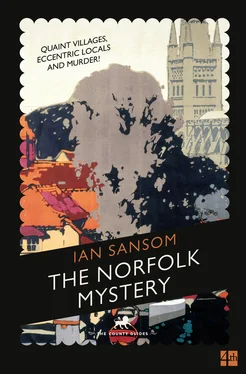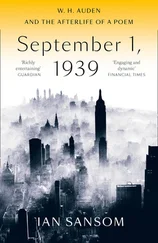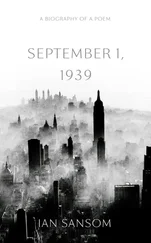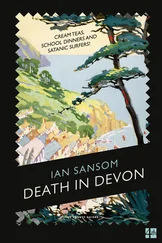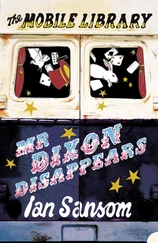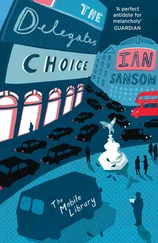‘You seem to have a reasonably well-stocked mind, Sefton.’
‘Thank you, sir.’
‘As one would expect. Languages?’
‘French, sir. Latin. Greek. German. Some Spanish.’
‘Yes. I see you were in Spain.’
‘I was, sir.’
‘A Byron on the barricades?’
‘I never considered myself as such, no, sir.’
‘ No pasaran .’
‘That’s correct, sir.’
‘Unable to fight in Spain, I learned Spanish instead.’
We spoke for a few minutes in Spanish, my interviewer remarking in a rudimentary way upon the weather and enquiring about the prices of rooms in hotels.
‘Your Spanish is certainly satisfactory, Sefton,’ he said. ‘Good. Do you have any questions about the position?’
‘Yes, sir.’
My main question, naturally, was what the position was and what it might entail – I still had no clear idea. I cleared my throat and tried to formulate the question in as inoffensive a manner as possible. ‘I wondered, sir, exactly what it might … entail, working as your assistant?’
My interviewer looked at me directly and unguardedly at this point, in a way that made me feel exceedingly uncomfortable. He had a way of looking at you that seemed violently frank, as though willing you to reveal yourself. And when he spoke he lowered his voice, as though confiding a secret.
‘Well, Sefton. I hope I can be honest with you?’
‘By all means, sir.’
‘Good.’ He carefully fingered his moustache before going on. The light of the lamps was reflected in his eyes. ‘I believe, Sefton, that there is a terrible darkness deepening all around us. We face not un mauvais quart d’heure , Sefton, but something more serious. Do you understand what I am saying?’
‘I think so, sir.’
I was not at all sure in fact if the serious darkness he was referring to was the darkness I had encountered in Spain, and which haunted me in my dreams, or if it were some other, ineffable darkness of a kind with which I was not familiar.
‘I think perhaps you do see, Sefton.’ He stared hard at me, as though attempting to penetrate my thoughts, his voice gradually rising in volume and pitch. ‘Anyway. It is my intention to shed some light while I may.’
‘I see, sir.’
‘I hope that you do, Sefton. It has been my life’s work. What I see around me, Sefton, is the world as we know it rapidly disappearing: the food we eat; the work we do; the way we talk; the way we consort ourselves. Everything changing. All of it about to go, or gone already: the miller, the blacksmith, the wheelwright. Destroyed by the rhythms of our machine age.’ He paused again to stroke his moustache. ‘It has been my great privilege, Sefton, in my career to visit the great countries and cities of the world: Paris, Vienna, Rome. I intend my last great project to be about our own enchanted land.’
‘England, sir.’
‘Precisely. The British Isles, Sefton. These islands. The archipelago. Before they disappear completely.’
‘Very good, sir.’
He fell silent, staring into the middle distance.
I felt that my question about the job had not been answered entirely or clearly, and realised I might need to prompt him for a more direct answer. ‘And what exactly would the person appointed by you be required to do, sir, on your … project?’
‘Ah. Yes. What I need, Sefton, is someone to write up basic copy that I shall then jolly up and make good. The person appointed would also be required to make arrangements for travel and accommodation, and to assist me in all aspects of my researches on the project as I see fit.’
‘I see, sir.’
‘I shan’t give you a false impression of my daily rounds, Sefton. There is no glamour. It is tiresome work requiring long hours, endurance and determination.’
‘I understand, sir.’
‘And do you think you’re up to such a task?’
‘I believe so, sir.’
‘Are you married, Sefton?’
‘No, sir.’
‘Engaged to be married?’
‘No, sir.’
‘A homosexual?’
‘No, sir.’
‘Pets?’
‘No, sir.’
‘Good. We’ve plenty of those already. You don’t mind dogs?’
‘No, sir.’
‘Terriers?’
‘No, sir.’
‘Cats?’
‘No, sir.’
‘Birds?’
‘No, sir.’
‘Aversions or allergies to any kind of animals?’
‘Not that I know of, sir.’
‘And you are not in current employ?’
‘No, sir.’
‘Good. So you’d be able to start immediately?’
‘Yes, sir.’
‘Very well.’
My curiosity had certainly been piqued by my interviewer’s description of his enterprise, but after several rounds of questioning I was still keen to know more about the details. I made one more bid for clarity. ‘Can I ask, sir, exactly what the project is to be?’
‘The project?’ He sounded surprised, as though the nature of his work was widely known. ‘A series of books, Sefton, called The County Guides . A complete series of guides to the counties of England.’
‘All of them, sir?’
‘Indeed.’
‘How many counties are there?’
‘Schoolmaster, aren’t we, Sefton?’
‘Yes, sir.’
‘Well, then? Let me ask you the question: how many counties are there?’
‘Forty? thirty-nine?’
‘Thirty-nine. Exactly.’
‘So, thirty-nine books?’
‘We may also include the bailiwicks of Guernsey and Jersey, Sefton. In which case there shall be forty-one.’
‘An … ambitious project then, sir.’ It struck me, in fact, not so much as ambitious as the very definition of folly.
‘In a life, Mr Sefton, of finite duration I can’t imagine why anyone would wish to embark on any other kind of project. Can you?’
‘No, sir.’
‘I intend the County Guides as nothing less than the new Domesday Book. I shall be going out into England with my assistant to find all the good things and to put them down.’
‘Only the good, sir?’
‘The books are intended as a celebration, yes, Sefton.’
‘Works of … selective amnesia, then, sir?’
My interviewer frowned deeply at this untoward remark. ‘Among those I would call the “not-so-intelligentsia”, Sefton, I know there to be an inclination to talk down our great nation. Are you one such down-talker?’
‘I like to think I’m a realist, sir.’
‘As am I, Sefton, as am I. Which is why I am undertaking this project. You may wish to reflect, sir, that you are of a generation that may live to see the year 2000, from which distant perspective you will be viewing a nation doubtless very different from that which you see around you now. It is my desire merely to set down a record of this place before its roots are cut and its sap drained, and the ancient oaks are felled once and for all. I do not wish England – our England – to be unknown by future generations. Do you understand, Sefton?’
‘I think so, sir.’
‘Good.’ He shifted in his seat and he glanced around the room, as though someone were among us. ‘Because I believe I can feel the chilly hand of fate coming upon us, Sefton. The County Guides I hope shall be clarion calls: they may be memorials.’ He paused momentarily for reflection upon this profundity.
‘And how long do you imagine this great enterprise will take, sir?’
‘I intend to have completed the series by the end of the decade, Sefton.’
‘By 1940?’
‘1939 I think you’ll find marks the end of the decade, Sefton. 1940 forms a part of the next, surely?’
‘Yes, of course.’
‘So, 1939’s our deadline.’
‘A book on every county? By 1939?’
‘On every county, yes, Sefton. And by 1939. A celebration of England and the Englishman. From the wheelwrights of Devon to the potters of the north, from the shoe-makers of Northampton to the chair-makers of High Wycombe, the books will be—’
Читать дальше
